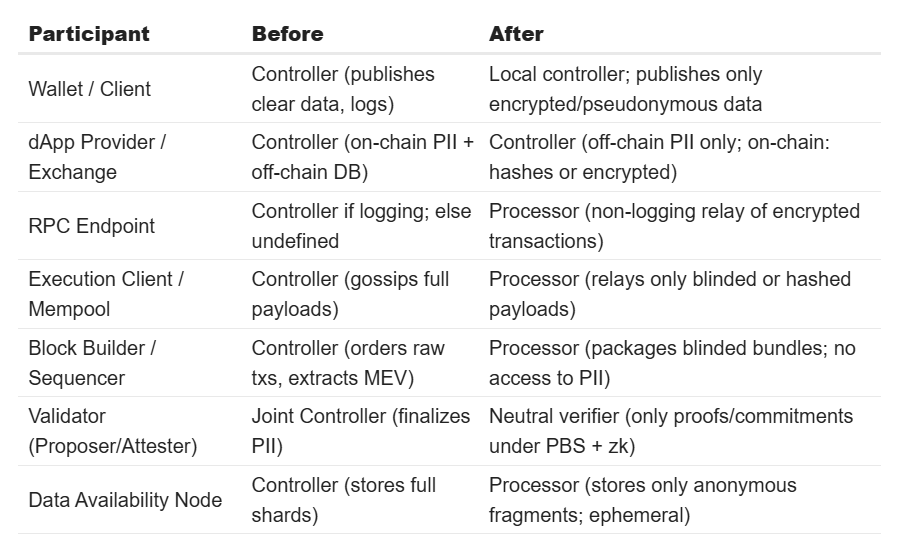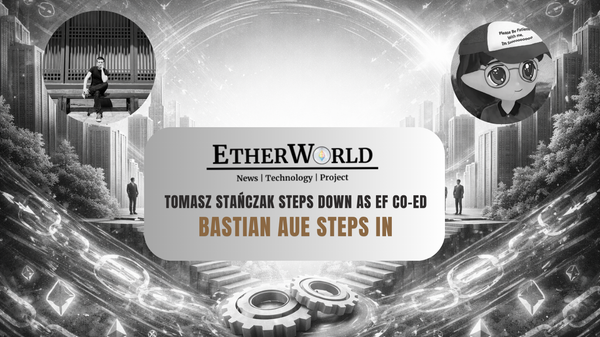Ethereum could be heading toward a big change. A new proposal suggests the network should become more modular and privacy-friendly not just for users, but to meet privacy laws like the EU’s GDPR.
On paper, it makes sense. Ethereum is used by people everywhere, including Europe. If it wants to be taken seriously by governments and institutions, it needs to follow the rules. That includes rules about personal data. But that brings up a deeper question. Ethereum was built to be decentralized, open, and unchangeable. What happens when it starts changing to fit real-world laws?
The Problem With Privacy and the Blockchain
Blockchains don’t forget. Once data is added to Ethereum, it’s there forever. Anyone can see it. That’s how it stays secure and transparent. But privacy laws like GDPR don’t work that way. They say people have the right to delete their personal information. That puts Ethereum and GDPR on opposite sides of the table.
This new proposal tries to fix that. It suggests Ethereum should push personal data off the blockchain. Only the proofs not the actual information should go on-chain. It also recommends tools like zk-SNARKs, which can confirm that something is true without showing the details.
There’s also a plan to make temporary data blobs that disappear after 18 days. This would help reduce the amount of personal data stored on-chain, even indirectly.
What It Could Unlock
If Ethereum becomes GDPR-friendly, it could start seeing a new kind of user. Right now, it’s mostly used by crypto projects, DeFi platforms, and NFT creators. But with privacy and legal compliance built in, it could attract bigger, more traditional players.

Imagine local governments using Ethereum for voting or ID systems. Hospitals could use it to store patient records securely. Even banks could run on Ethereum without breaking privacy laws.
These are things people often talk about when they say “real-world adoption”. But they’ve always hit a wall when it comes to privacy and legal risks. This proposal could remove that wall.
But What Are We Giving Up?
The idea sounds smart. But it changes something deeper.
Ethereum was supposed to be a place where no one was in charge. You couldn’t change the data. You couldn’t remove it. You couldn’t control it. Now we’re talking about building in ways to erase things. To hide them. To control who sees what.
That might be necessary especially if Ethereum wants to work inside regulated spaces. But it also raises a bigger question: Are we changing Ethereum to fit the world? Or are we changing it into something else entirely?
There’s a fine line between building useful tech and moving away from the core idea.
Right now, this is just a proposal. Nothing has been changed in the Ethereum codebase yet. But it does show a direction. Ethereum is no longer just a developer playground or a crypto experiment. It’s growing up. That means it has to deal with laws, with rules, with real-world pressure. This proposal is a step toward that.
And it’s not just Ethereum. The UK recently announced it would open crypto ETNs to retail investors. That means more people in traditional markets will have access to crypto with fewer restrictions. Moves like these show that crypto is being pulled closer to mainstream finance. Privacy proposals like this one are part of the same shift.
Whether it’s the right step or just a necessary one is still up for debate. If you have any thoughts or feedback that you would like to share, you can write to team@etherworld.co or @ether_world
Similar Reads
- Understanding 3-Slot Finality: A New Era in Blockchain Consensus
- Wall Street Meets Web3: SharpLink Bets $425M on Ethereum with Consensys at the Helm
- Ethereum Acceleration: Faster and Smarter
- Ethereum Foundation Backs ZKnox for Post-Quantum Security
- EtherStrategy vs. MicroStrategy: Onchain Ethereum Advantage Explained
- Vitalik Buterin Bets on Privacy Pools, A New Chapter for Ethereum Privacy?
Disclaimer: The information contained in this website is for general informational purposes only. The content provided on this website, including articles, blog posts, opinions, and analysis related to blockchain technology and cryptocurrencies, is not intended as financial or investment advice. The website and its content should not be relied upon for making financial decisions. Read full disclaimer and privacy Policy.
For Press Releases, project updates and guest posts publishing with us, email to contact@etherworld.co.
Subscribe to EtherWorld YouTube channel for ELI5 content.
Share if you like the content. Donate at avarch.eth
You've something to share with the blockchain community, join us on Discord!








